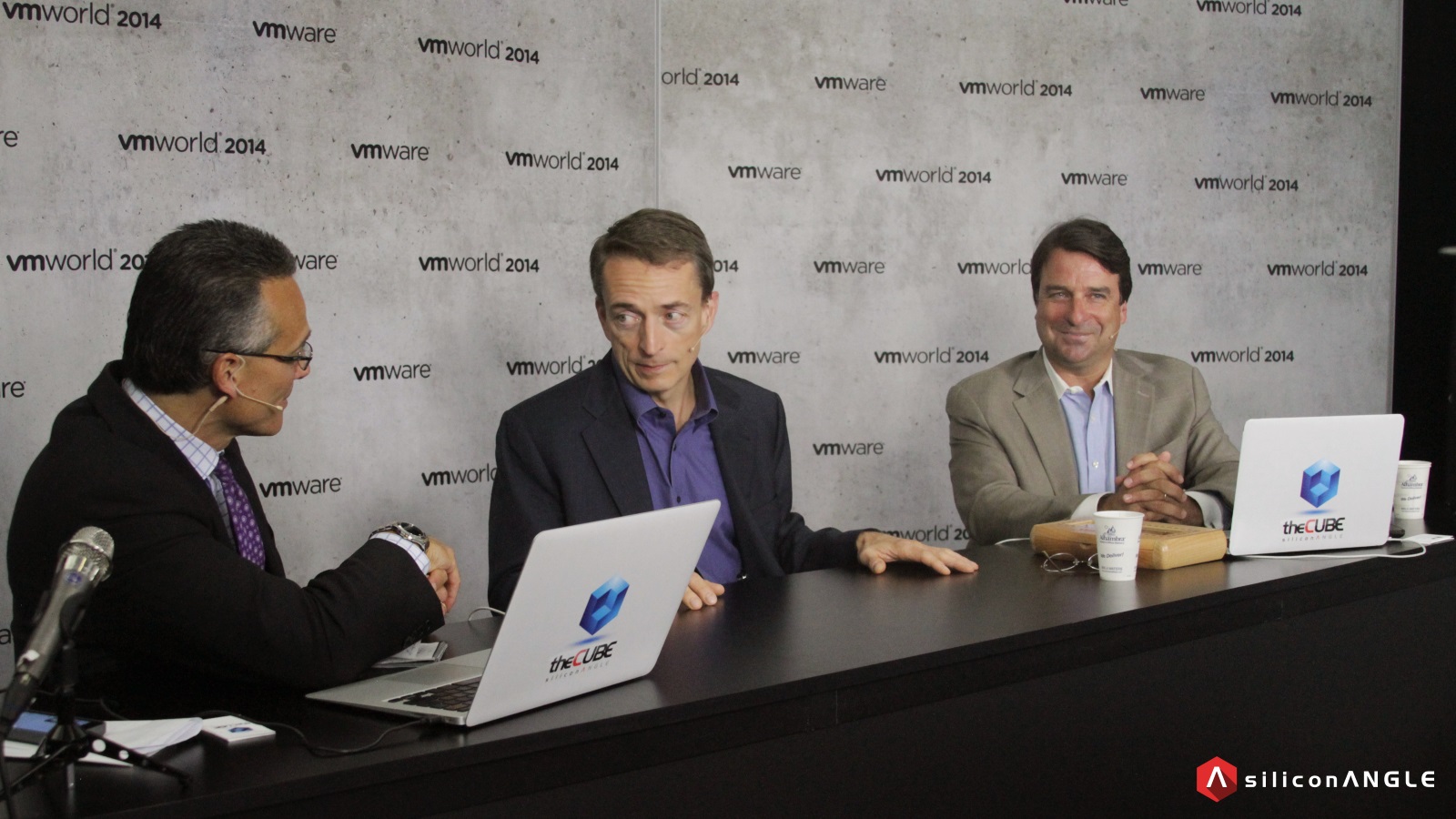 NEWS
NEWS
 NEWS
NEWS
 NEWS
NEWS
In the wake of yesterday’s mega merger between Dell Inc. and EMC Corp., Pat Gelsinger, CEO of EMC’s VMware Inc. beamed that he “could not be more excited about today’s announcement”, adding that the deal is a “very positive” one for all concerned.
Gelsinger could be right, and the deal is unlikely to bring about any immediate changes at VMware, which will remain much as it was – an independently traded company operating under the wing of a strong parent firm. The new Dell/EMC giant will keep its 83 percent share in the company but for VMware, it’s pretty much going to be business as usual, at least for the time being.
“VMware’s Mission and strategy remain unchanged,” Gelsinger said on a call in the wake of the merger. In other words, VMware will continue to press ahead on its path to the software-defined data center, with a range of cloud, mobile and end-user offerings.
New kingpin Michael Dell, who’ll become CEO of the combined Dell/EMC entity, echoed those sentiments, saying: “Our industry has a long history of companies collaborating and also competing against each other. Certainly that will continue here.”
Of course, that’s not to say Dell doesn’t have plans for VMware in the slightly-longer term. VMware is after all, the most substantial asset EMC owns, and the deal wouldn’t have been anywhere near as colossal without it.
“VMware is the obvious crown jewel and if Dell could jettison the no-growth storage parts and invest in growing VMware storage and networking, that would be interesting,” concluded Wikibon’s co-founder and principal analyst Dave Vellante in a lively CrowdChat debate yesterday.
Nevertheless, it remains to be seen how much investment Michael Dell intends to make in VMware other the coming years. Vellante said he’ll need to choose between taking an aggressive or non-aggresive path with the company.
“If he wanted to, he could crush in storage by driving massive investment in software-defined and letting VMware drive the agenda,” Vellante said. That’s one option for Dell the CEO, but he also has to consider the massive debt Dell the company has taken on with its acquisition of EMC – according to some reports, the interest payments alone will amount to $2 billion a year. As such, Dell the CEO might want to temper his investment in VMware so as to better manage Dell/EMC’s cash flow and pay off that debt, Vellante said.
“If he was more aggressive, the conundrum is he’d cream the competition, and that includes EMC,” Vellante warned.
Whatever Dell’s long-term plans for VMware are, other analysts believe it’s unlikely the company will be able to resist using VMware as a vehicle to sell more of its own hardware. Writing in Network World, Brandon Butler says Dell could look to seize the initiative in a number of key areas where VMware operates, including the cloud, converged infrastructure and software-defined networking. In particular, Dell might be tempted to position itself as the primary hardware supplier for VMware’s EVO:RAIL solution for managing converged infrastructure environments. Up until now, EVO:RAIL can be run on any hardware that meets the technical specifications, but the temptation for Dell to make its own hardware the default might be too tempting to ignore.
The relationship would no doubt work both ways, too. In the call, VMware’s Gelsinger pointed to the prospect of a billion-dollar boost in sales for VMware once Dell starts bundling and reselling its products, rather than those of vendors. The CEO talked about storage and converged infrastructure as big opportunities under Dell’s stewardship. He also said vCloud Air should benefit, because it’s a natural disaster-recovery-as-a-service product for Dell to resell to its customers.
This strategy does come with an element of risk, however. As the two companies (Dell/EMC and VMware) begin to ramp up their efforts at selling each other’s products, there’s a danger they could end up alienating some of their customers if the pressure gets too much. Throw in customer’s fears of getting locked-in to Dell/EMC/VMware, and it could ultimately force them to seek out alternatives, Wikibon’s Brian Gracely told Network World.
“In the near-term, it doesn’t impact customers,” Gracely said, noting that the deal won’t be concluded until the middle of next year at the earliest. “Mid to long-term however, the merger could impact [customer’s] underlying hardware buys.”
Support our mission to keep content open and free by engaging with theCUBE community. Join theCUBE’s Alumni Trust Network, where technology leaders connect, share intelligence and create opportunities.
Founded by tech visionaries John Furrier and Dave Vellante, SiliconANGLE Media has built a dynamic ecosystem of industry-leading digital media brands that reach 15+ million elite tech professionals. Our new proprietary theCUBE AI Video Cloud is breaking ground in audience interaction, leveraging theCUBEai.com neural network to help technology companies make data-driven decisions and stay at the forefront of industry conversations.